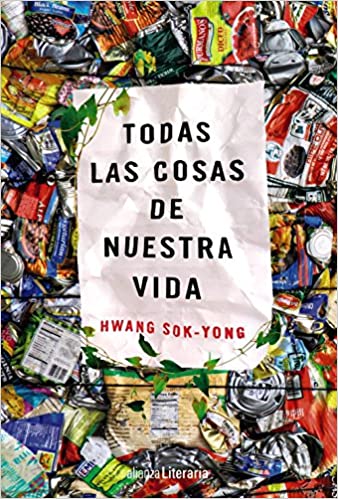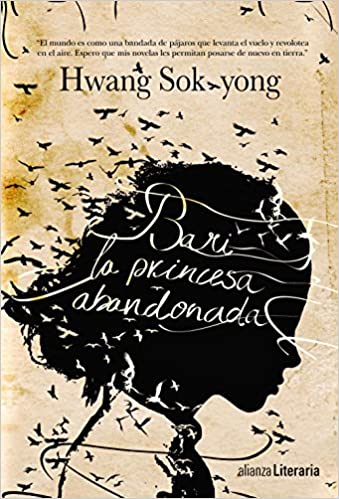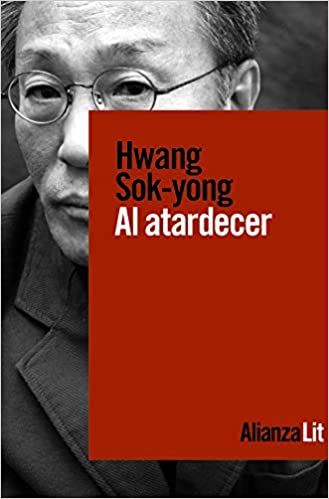Literature bears witness to the juiciest intrastories in every historical development marked by the current geopolitical events. Today's Korea survives divided in two thanks to a Cold War from which Germany was able to escape in 89 but which maintains its particular Iron Curtain on this Asian peninsula.
Particularities that a veteran author like Hwang Sok-yong can attest from its literature committed to the idea of getting the message to any other area of the world not so affected by the continental influences of China and Russia. And perhaps if Korea were unified again, it could be said that that unfinished war, underlying World War II, had finally closed its last chapter. Of course, without meaning that new current tensions would be resolved. The strictly literary issue is that this romantic point of reunification as a reconciliation and recovery, which naturally unites both the inhabitants on both sides, composes in this author a recurring background of exciting stories.
Because Sok-Yong revels in that melancholic charm. In addition to the frank intention of reaching us as a narrator at the crossroads between his deepest literary motivations and the imperative of conscience to surrender what happens in this country of souls and hearts divided between the Japanese empire that once occupied them and the Chinese shores where new covert enemies awaited. A country in constant crossroads that needed an author like Sok-Yong, loaded with his weapons of the realism more awareness awaiting resolution.
Top 3 recommended novels of Hwang Sok-yong
All the things in our life
Sok-Yong participates in that endearing point about the disadvantaged characters who intervene as a faithful reflection of the harsh reality. Jeongho is fourteen years old and has a feline look. They call it Googly Eyes. Their mother's shortage of income forces them both to move to Nanjido, Flower Island, a huge landfill west of Seoul where orchids have given way to trash and thousands of people are living in shacks nestled in mountains of waste. . A highly hierarchical and codified society in which everything, from work to clothing and maintenance, comes from the landfill, and whoever manages to better position themselves in the recovery of garbage earns more.
Ojos Salones finds in Trasquilón, a bald boy, a friend who will show him the secrets of such a sordid and nauseating place, where alcohol, gambling and violence are everyday. Hand in hand with Trasquilón and a gang of marginalized youths, he will go to meet the spirits of the ancient inhabitants when the place was a fertile farmland where shamanic traditions were worshiped. An invisible world where there is as much harmony as is lacking in the real world.
Set in the Korea of the economic boom of the seventies, marked by dehumanized and unscrupulous modernization, Hwang Sok-yong reveals the other side of progress, that of the marginalized and excluded, that of human waste that lives on waste of the consumer society. Hwang Sok-yong combines reality, fiction and fantasy in a novel with Dickensian overtones that, despite the harshness of the life it describes, exudes lyricism, emotions and a good dose of humor. An optimistic and hopeful novel that highlights the beauty of living, even in environments that do not encourage it.
Bari, the abandoned princess
Sok Yong's realism is also soaked in the legendary, the mythical. Because reality itself is also structured around imaginaries dotted with customs that convey the fantastic. The strange roots between the crude daily life and the necessary imagination to cope with existence make up in this story a fascinating account of that daily heroism with which those who survive the circumstances imposed by the most inconsiderate power with the people develop.
Cheong Jin, North Korea. A girl, the seventh daughter of an official's family, is abandoned shortly after birth because she is not a boy. Rescued by her grandmother, she gives her the name of Bari, as the princess of an ancient legend who suffered the same fate and traveled to the ends of the earth in search of an elixir that would bring peace and tranquility to the souls of the living and of the dead.
The arbitrariness of the communist regime and famine dismember the family. Bari has no choice but to cross the Duman River and flee to China, where the future is not brighter. After a series of dramatic adventures, she ends her odyssey in London, where, a clandestine immigrant, too young to be a prostitute, she will have to start a new life in a strange society in which people, languages and creeds from all over the world come together. Her premonitory powers, inherited from her grandmother, to detect the pain and nightmares of others, will help her as the legendary princess on her journey to the afterlife to obtain the redemption of her spirit. «Bari.
The Abandoned Princess ”is a learning novel about the hardships of exile, the loneliness of emigration, the clash of cultures, political and religious intolerance, human exploitation…, about the miseries and evils of our days. Hwang Sok-yong, as in some of his previous works, has adapted to our times an old Korean legend that, in this case, highlights a fundamental element of their traditional culture such as the importance of the supernatural and the relationship of the feminine with the beyond. The result is a novel of extreme beauty and sensitivity, endearing, in which the magical, the dreamlike and the reality intersect in total harmony, making the supernatural something totally natural.
At sunset
There is enough of a contradiction in the vision of the critical character who ends up being listened to. The one who is received in the best forums to tell what is happening in any corner of the world. Because once you reach that level you can end up falling into the trap of disguising yourself between words that raise criticism without echo, without reverberation between hollow consciences. Sok-yong may be aware of this approach and via literature he always returns to the places where injustices occur that must be narrated for everyone.
At the end of the lecture, a young woman approaches Minwoo Park, the director of a large architectural firm, and hands him a note, with a name and a phone number. The young woman is Woohee Jeong, a theater director who lives in a moldy basement, who works every night in a supermarket to make ends meet and eats expired food that she would have to throw away.
In the twilight of his life, Minwoo Park has the satisfaction of having succeeded, contributing to the modernization of his country, despite being born into poverty. But, with the note, the memories of the past reappear, inviting you to immerse yourself in a world that you had forgotten. He is then forced to question himself about the corruption that reigns in the construction sector, his own responsibility in the deterioration of the urban landscape and the violence exercised against the expropriated. Hwang Sok-yong is one of the most famous writers in South Korea, very sensitive to the social and political problems of his country, which has earned him jail and exile.



